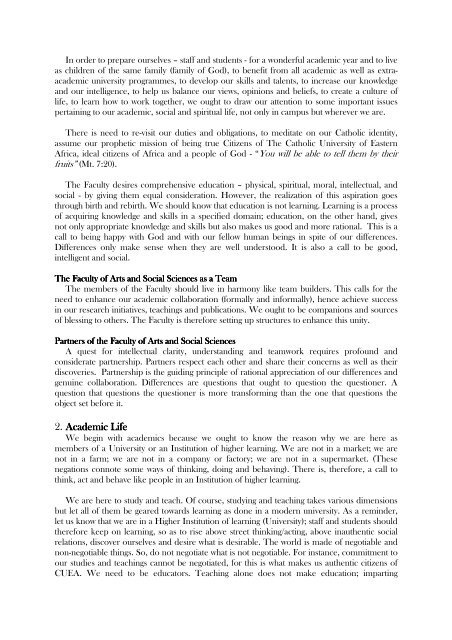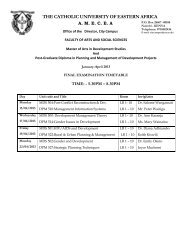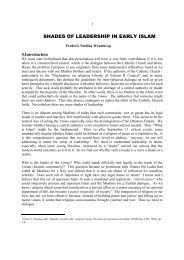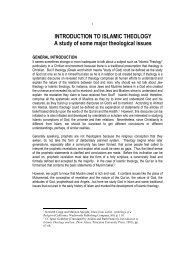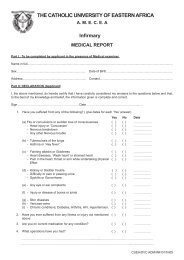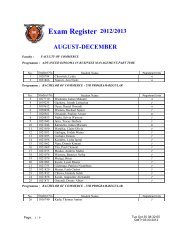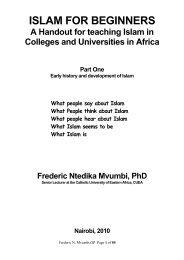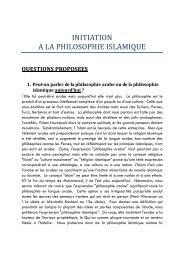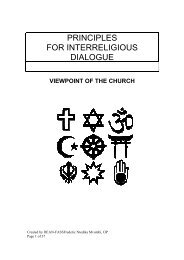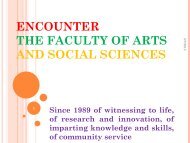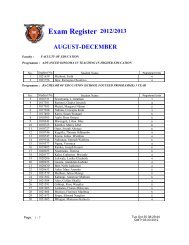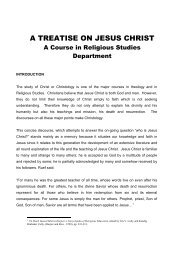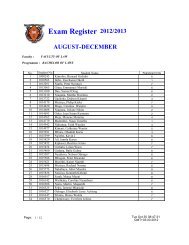FASSC PROFILE.pdf - CUEA
FASSC PROFILE.pdf - CUEA
FASSC PROFILE.pdf - CUEA
You also want an ePaper? Increase the reach of your titles
YUMPU automatically turns print PDFs into web optimized ePapers that Google loves.
In order to prepare ourselves – staff and students - for a wonderful academic year and to live<br />
as children of the same family (family of God), to benefit from all academic as well as extraacademic<br />
university programmes, to develop our skills and talents, to increase our knowledge<br />
and our intelligence, to help us balance our views, opinions and beliefs, to create a culture of<br />
life, to learn how to work together, we ought to draw our attention to some important issues<br />
pertaining to our academic, social and spiritual life, not only in campus but wherever we are.<br />
There is need to re-visit our duties and obligations, to meditate on our Catholic identity,<br />
assume our prophetic mission of being true Citizens of The Catholic University of Eastern<br />
Africa, ideal citizens of Africa and a people of God - “You will be able to tell them by their<br />
fruits” (Mt. 7:20).<br />
The Faculty desires comprehensive education – physical, spiritual, moral, intellectual, and<br />
social - by giving them equal consideration. However, the realization of this aspiration goes<br />
through birth and rebirth. We should know that education is not learning. Learning is a process<br />
of acquiring knowledge and skills in a specified domain; education, on the other hand, gives<br />
not only appropriate knowledge and skills but also makes us good and more rational. This is a<br />
call to being happy with God and with our fellow human beings in spite of our differences.<br />
Differences only make sense when they are well understood. It is also a call to be good,<br />
intelligent and social.<br />
The Faculty of Arts and Social Sciences as a Team<br />
The members of the Faculty should live in harmony like team builders. This calls for the<br />
need to enhance our academic collaboration (formally and informally), hence achieve success<br />
in our research initiatives, teachings and publications. We ought to be companions and sources<br />
of blessing to others. The Faculty is therefore setting up structures to enhance this unity.<br />
Partners of the Faculty of Arts and Social Sciences<br />
A quest for intellectual clarity, understanding and teamwork requires profound and<br />
considerate partnership. Partners respect each other and share their concerns as well as their<br />
discoveries. Partnership is the guiding principle of rational appreciation of our differences and<br />
genuine collaboration. Differences are questions that ought to question the questioner. A<br />
question that questions the questioner is more transforming than the one that questions the<br />
object set before it.<br />
2. Academic Life<br />
We begin with academics because we ought to know the reason why we are here as<br />
members of a University or an Institution of higher learning. We are not in a market; we are<br />
not in a farm; we are not in a company or factory; we are not in a supermarket. (These<br />
negations connote some ways of thinking, doing and behaving). There is, therefore, a call to<br />
think, act and behave like people in an Institution of higher learning.<br />
We are here to study and teach. Of course, studying and teaching takes various dimensions<br />
but let all of them be geared towards learning as done in a modern university. As a reminder,<br />
let us know that we are in a Higher Institution of learning (University); staff and students should<br />
therefore keep on learning, so as to rise above street thinking/acting, above inauthentic social<br />
relations, discover ourselves and desire what is desirable. The world is made of negotiable and<br />
non-negotiable things. So, do not negotiate what is not negotiable. For instance, commitment to<br />
our studies and teachings cannot be negotiated, for this is what makes us authentic citizens of<br />
<strong>CUEA</strong>. We need to be educators. Teaching alone does not make education; imparting


